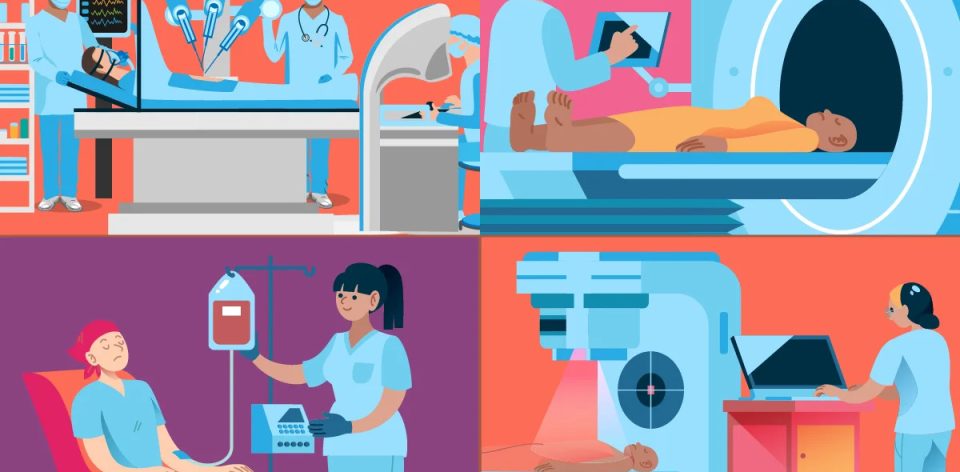Receiving a lung cancer diagnosis can be an emotional and overwhelming experience for both patients and their families. Here’s a comprehensive guide on what to do next:
Processing the Diagnosis
After receiving a lung cancer diagnosis, it’s crucial to take time to absorb the news. While it’s natural to feel anxious and eager to begin treatment, it’s often advisable to thoroughly explore all available treatment options and consider seeking a second opinion. Dr. Pragnan Kancharla, a medical oncologist at MedStar Health, emphasizes the importance of understanding each case before starting treatment, especially since some forms of lung cancer, such as small cell lung cancer, require immediate intervention.
Understanding Staging and Testing
Following the diagnosis, your healthcare provider will conduct a series of tests to determine the extent of cancer spread. These tests, which are part of the staging process, may include:
- Computed Tomography (CT) Scan
- Magnetic Resonance Imaging (MRI)
- Positron Emission Tomography (PET) Scan
- Bone Scans
Staging is critical for developing an effective treatment plan, as it provides detailed information about the type and stage of your lung cancer.
Assembling Your Cancer Care Team
Once staging is complete, your care team will develop a tailored treatment strategy. Your cancer care team may include:
- Medical Oncologist: Specializes in using chemotherapy, immunotherapy, and targeted therapies to treat cancer.
- Thoracic Surgeon: Focuses on diseases of the chest and lungs, including surgical interventions.
- Radiation Oncologist: Administers radiation therapy to target cancer cells.
- Pulmonologist: Manages lung diseases and conditions.
- Additional Healthcare Providers: Includes nurses, pharmacists, respiratory therapists, and social workers who support your overall treatment and well-being.
You will also need to continue seeing your primary care provider to manage any other health conditions.
Exploring Treatment Options
Your treatment plan will be determined by the type and stage of your lung cancer. Here are the primary treatment options:
- Surgery: For early-stage lung cancer, surgery might be recommended to remove the tumor. The type of surgery depends on the tumor’s size and location. Surgical options range from removing just the tumor to performing a lobectomy or pneumonectomy (removal of a lung).
- Radiation Therapy: Utilizes high-energy rays to kill cancer cells. It can be external (delivered through the skin) or internal (brachytherapy, where radioactive material is placed near the tumor). Radiation may be used alone or in combination with other treatments.
- Chemotherapy: Involves using drugs to kill cancer cells, typically administered through an IV or port. Chemotherapy can be used before surgery (neoadjuvant), after surgery (adjuvant), or as the primary treatment for advanced cancer.
- Immunotherapy: Works by enhancing the body’s immune response to recognize and attack cancer cells. Key types include PD-1/PD-L1 inhibitors and CTLA-4 inhibitors, which help the immune system target cancer more effectively.
- Targeted Therapy: Targets specific genetic mutations driving the cancer. Molecular testing of your tumor will determine if targeted therapies are suitable. Common mutations include EGFR, ALK, and KRAS.
Participating in Clinical Trials
Clinical trials play a vital role in advancing lung cancer treatment and improving patient outcomes. They offer access to new therapies and innovative treatment approaches. If traditional treatments are not effective, or if you’re interested in exploring the latest options, consider discussing clinical trials with your healthcare provider. The American Lung Association’s clinical trial finder can also help identify potential studies for your specific case.
By understanding these steps and options, you can make informed decisions and work with your healthcare team to develop the best possible treatment plan for your lung cancer.



